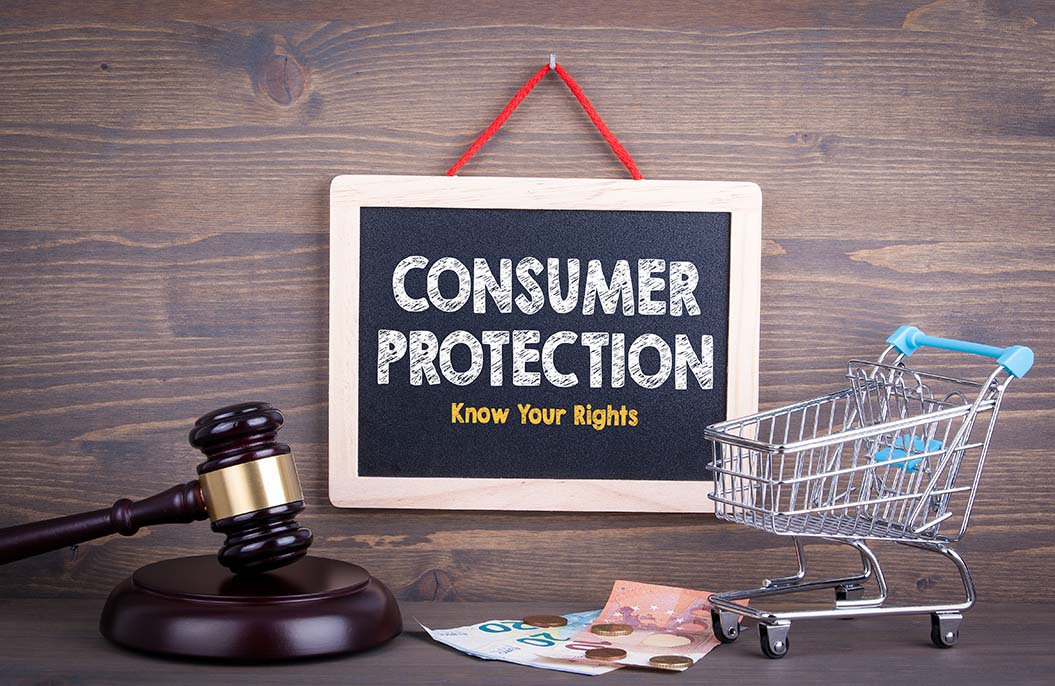As a consumer, it’s important to know your legal rights to protect yourself when making purchases or entering into contracts. Consumer protection laws exist to ensure fair treatment and prevent businesses from taking advantage of you. Whether you’re buying a product, hiring a service, or dealing with faulty goods, understanding your rights helps you make informed decisions and resolve disputes effectively. Here’s what you need to know.

Right to Safety and Quality Products
One of the fundamental rights you have as a consumer is the right to purchase safe and quality products. Businesses are required to sell goods that meet certain safety standards and are free from defects. If you purchase a product that is unsafe or substandard, you have the right to demand a refund, replacement, or repair. In some cases, manufacturers can be held liable if their products cause harm or injury to consumers.
Consumer protection laws also ensure that the goods you buy are as described. If an item fails to match its description or doesn’t perform as expected, you may be entitled to a remedy.
Right to Clear and Honest Information
You also have the right to receive accurate and clear information about the products or services you’re purchasing. This includes details such as the price, quality, ingredients, or any risks associated with a product. Under consumer protection laws, businesses are prohibited from misleading advertising or deceptive practices.
For example, if a company advertises a product as “organic,” they must ensure that it meets the defined standards of organic certification. If the product doesn’t meet the advertised claims, you can take legal action.
Right to Fair Contracts and Terms
Consumer protection laws also ensure that contracts you enter into are fair and transparent. This applies to both written and verbal agreements, including service contracts, subscriptions, and purchases. Any terms that are unfair, such as hidden fees or excessively restrictive clauses, can be challenged in court.
For example, if you sign up for a service and are later hit with unexpected charges, you may be able to cancel the contract or seek a refund. In many cases, businesses are legally obligated to clearly explain the terms of the contract before you commit.
Right to Return Faulty Goods
If you purchase an item that turns out to be defective or doesn’t meet your expectations, you have the right to return it for a refund, replacement, or repair. The specific time frame for returns depends on the retailer and the nature of the product, but most stores offer a return policy that protects consumers.
In many regions, laws also guarantee a minimum period for returns or exchanges. For example, if you buy a defective product, the law may allow you to return it within a certain number of days, even if the store’s policy doesn’t explicitly cover it.
Right to Protection Against Unfair Practices
Consumer rights also include protection from unfair or predatory business practices. This includes preventing businesses from engaging in scams, fraud, or coercion. If you are subject to misleading sales tactics or unfair pricing practices, you can file a complaint with consumer protection agencies, such as the Federal Trade Commission (FTC) in the U.S. or similar authorities in other countries.
In addition, consumers have the right to protection from identity theft and fraud when making online or in-store purchases. Businesses are required to handle your personal information securely, especially when it comes to payment and financial data.
Conclusion: Be Informed and Protect Your Rights
In conclusion, understanding your legal rights as a consumer is essential to ensuring that you are treated fairly and protected from exploitation. Knowing your rights empowers you to make informed purchasing decisions, seek remedies when things go wrong, and challenge unfair practices. From the right to safe and quality products to protection against misleading advertising and unfair contracts, consumer protection laws are in place to safeguard your interests. Always be aware of your rights, and don’t hesitate to take action if you believe you’ve been wronged.











